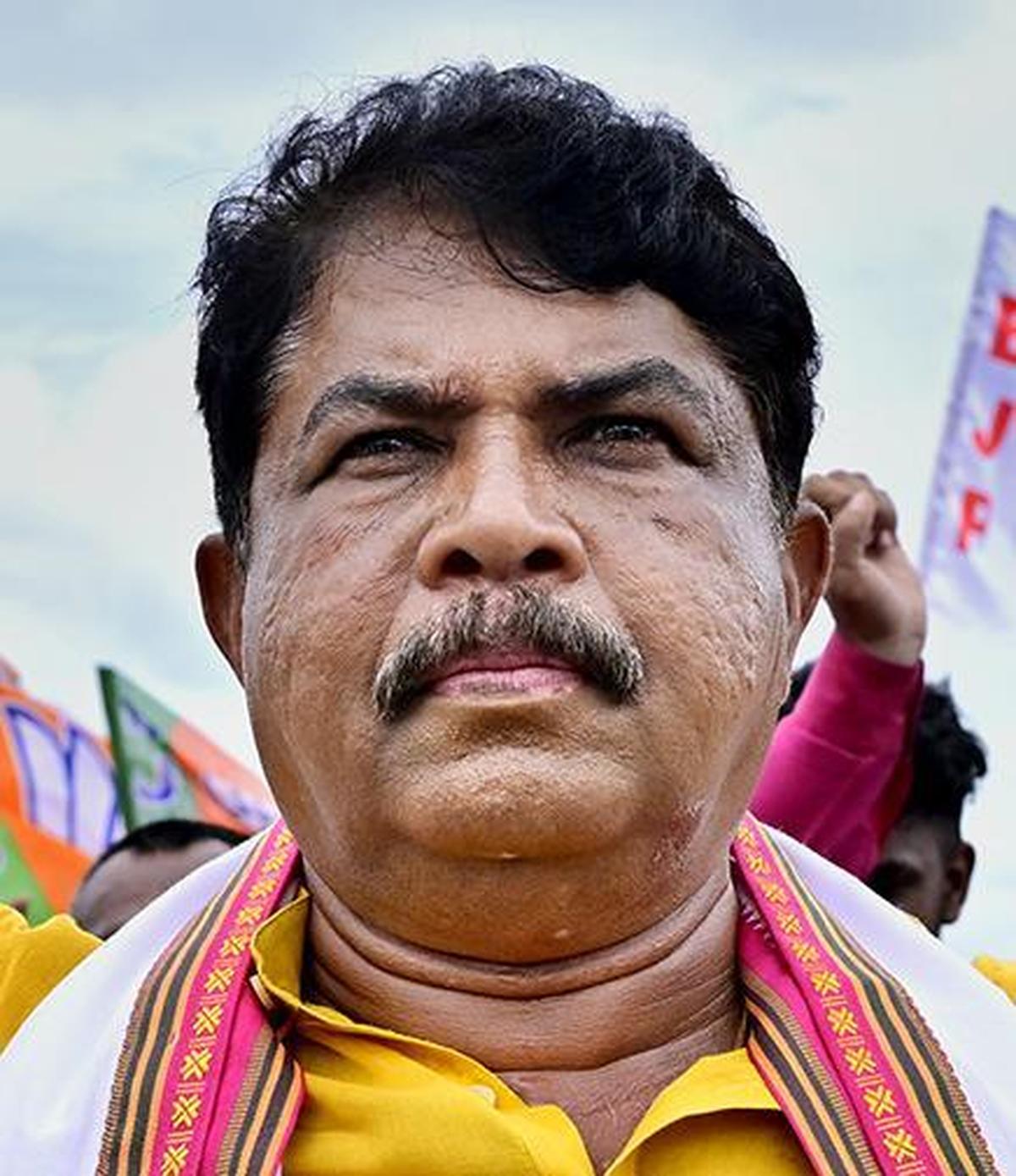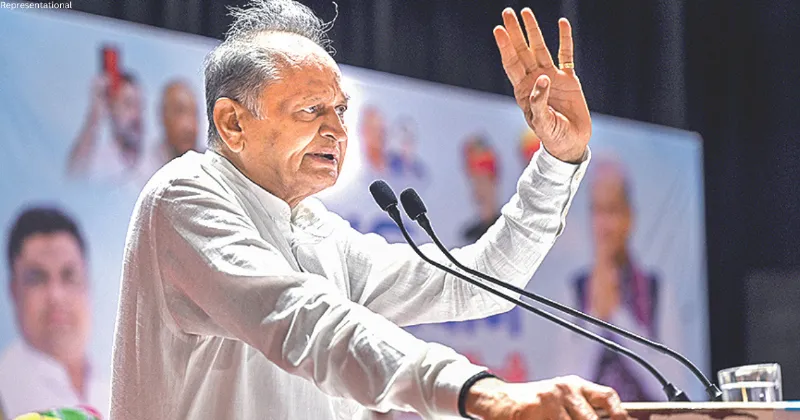Former Chief Minister and senior Congress leader Ashok has made an open demand and striking appeal to the party high command, urging them to promptly announce who will lead Karnataka as the next Chief Minister. Addressing reporters with a mix of firmness and concern, he said the growing uncertainty has begun to undermine the morale of party workers and could potentially weaken the public’s trust. He strongly criticised the prolonged suspense around the leadership decision and stated that the people voted for stability, not negotiation. In his view, the delay creates confusion at a crucial moment when governance preparation should be underway without distractions.
Ashok argued that the leadership question must be addressed without wasting further time because the state’s administration cannot wait indefinitely for political clarity. He pointed out that several departments, project heads, and district officials are currently on standby, awaiting instructions that depend entirely on who will take charge. According to him, development decisions, budget mapping, and welfare planning are being unintentionally stalled due to the absence of a definitive leader. While Congress leaders have defended the delay as a democratic process, Ashok has warned that this explanation does not change how ordinary citizens interpret hesitation at such a decisive hour.
Across Karnataka, political circles are actively reading into every move made by party members, leading to speculative narratives that have contributed to the tension. Supporters of leading contenders have begun organising gatherings, chanting slogans, and displaying large posters to present symbolic strength. Ashok expressed concern that these displays may not merely reflect enthusiasm; they could gradually become the seeds of factional divisions. He emphasised that emotional mobilisation of crowds may seem harmless at first, but it ultimately turns the leadership selection into a competitive spectacle, harming the dignity and unity of the party. In his view, the high command must act quickly before these displays gather more force.
Observers believe that the internal process remains controlled, but admit that patience is thinning among local party workers who feel left in the dark. According to some insiders, Congress members across several constituencies are receiving mixed signals about whether to remain silent or signal support for specific leaders. Such ambiguity, they say, is risky at a time when rival parties are already preparing political narratives around indecision. Ashok highlighted that political opponents are watching closely, waiting to portray Congress as unstable. For him, the lack of clarity hands an advantage to detractors who are eager to challenge the party’s capacity to govern effectively.

High Command’s Responsibility and the Call for Discipline
Ashok stated that the party high command carries the responsibility not only to choose a leader but also to protect the public trust earned through votes. He warned that confusion in leadership selection sends a message of negligence to the voters who supported Congress believing it would deliver swift governance. According to him, this is not a moment to make strategic calculations for internal satisfaction; it is a moment to demonstrate discipline. He clarified that his position is not in favour of any specific leader, but in favour of timely decision-making. He insisted that decisive leadership must come before political balancing, because state administration cannot move forward without a centre of authority.
As he spoke, Ashok emphasised that clarity is a fundamental element of governance itself, particularly during the transition period that follows elections. Ministries, secretaries, and department heads are all waiting to initiate planning for the coming year, including revisions to project funds, educational grants, agricultural assistance schemes, and urban development initiatives. Without a definitive Chief Minister, these teams cannot begin formal work. Ashok argued that it would be a mistake to consider leadership suspense purely as a party issue. It has already begun spilling into administrative delays, creating quiet bottlenecks. He expressed concern that by the time the decision is made, the new government may find its timeline already compressed due to political hesitation.
Opposition reactions have become louder, with rival figures taunting the Congress for not being able to choose a leader even after gaining a mandate. Some opponents have claimed that the party’s majority has turned into its weakness, as leaders weigh power calculations instead of preparing to govern. Ashok believes the high command must understand that every additional day of uncertainty gives opponents an opportunity to shape the public narrative. He said that criticism from rivals is not as damaging as disappointment from supporters. The latter, he warned, could erode enthusiasm within the party and weaken its ability to start its administration with confidence.
Workers’ Sentiments and the Risks of Prolonged Silence: Demand
Grassroots workers from several districts have expressed frustration, stating that they expected a swift declaration immediately after the election numbers became evident. Many say they cannot answer simple questions from ordinary people who ask when the Chief Minister will be announced. According to Ashok, this silence from party leadership places workers in an uncomfortable position, forcing them to defend a situation they had no role in creating. He urged the high command to consider how sustained suspense affects those who stood on the ground during campaigns, winning support from communities, local organisations, farmers, youth groups, and women’s committees with promises of secure governance and rapid action.
Political analysts agree that internal unity must be preserved through clarity rather than prolonged negotiation. Some argue that the high command is trying to balance regional representation, seniority, and support among MLAs, and that this requires time. However, they also admit that public patience does not usually distinguish between internal complexity and visible performance. The longer the suspense continues, the less the public is inclined to view the process sympathetically. Ashok expressed concern that this situation may slowly convert celebration into doubt. He reminded the party that victory becomes meaningful only when it is followed by responsible action, not when it leads to extended internal assessments.

Party insiders believe that once the decision is announced, the government’s momentum can be restored quickly, but they also note that early setbacks are difficult to erase from public memory. According to Ashok, the announcement must be accompanied by a strong message emphasising unity, focus, and commitment to governance. He suggested that a clear show of solidarity after the announcement could immediately counter speculation. He also insisted that all leaders must publicly support the chosen Chief Minister without delay or hesitation. This, he said, is essential not for image-building alone, but for ensuring a smooth start for the administration that citizens are eagerly awaiting.

In conclusion, Ashok’s plea reflects a deeper concern for stability rather than criticism for its own sake. His statements highlight the delicate balance between democratic decision-making and public accountability. He believes that the weight of the mandate demands a swift and disciplined response from the high command, not an extended period of calculations. By declaring the Chief Minister without further delay, Congress can strengthen its credibility and reassure voters that their trust remains honoured. Ashok’s words serve as a reminder that governance begins with certainty, and certainty must always come before strategy when the responsibility lies with those who hold the people’s mandate.
Several senior functionaries in the party have privately acknowledged that Ashok’s statement mirrors concerns that many leaders are unwilling to express publicly. They believe the high command must recognise that silence does not always convey maturity; sometimes, it produces insecurity among those who are ready to work but lack direction. Some leaders argue that uncertainty encourages whispered conversations, exaggerated rumours, informal lobbying, and mistrust among colleagues. These factors, if allowed to build, can influence future cabinet formation and policy priorities. Ashok’s remarks, therefore, are being taken seriously as a warning against letting unspoken tensions evolve into avoidable conflicts.
Party observers are also assessing how the delay influences relationships between key departments and legislators intending to push welfare measures in their constituencies. Many MLAs are facing pressure from citizens who expect quick decisions on local matters ranging from infrastructure needs to ration delivery improvements. Without clarity at the top, these legislators cannot assure people when policy action will begin. Ashok’s concern centres on this gap between expectations and the party’s current silence. He emphasised that a government must signal readiness even before formally taking charge, and that readiness is measured not only through speeches but through timely institutional coordination.
Another emerging issue concerns budget planning, which requires early intervention from the Chief Minister’s office to guide modifications for upcoming fiscal priorities. Funds meant for agricultural development, urban rejuvenation, school upgrades, and digital governance initiatives must be channelled with careful supervision. If the leadership announcement gets further delayed, it could affect filing timelines, project approvals, and audit procedures. Experts say this may push departments into a rushed working cycle later in the year. Ashok, who has previously supervised state budgets, warned that a hurried government cannot deliver strong results if it begins with compressed timing imposed by indecision.
The ambiguity has reached a level where party workers are beginning to interpret signals more emotionally than politically. Some perceive the delay as a disregard for their hard work, while others fear their loyalty might later be overlooked if leadership positions are settled based on lobbying. Ashok urged the high command to take these sentiments seriously because wounded loyalty is harder to repair than public criticism. He said that when workers feel neglected, it weakens not just electoral energy but also social outreach, grassroots mobilisation, and the ability to respond to local crises. This emotional fatigue, he warned, can leave a lasting impact beyond the leadership decision itself.
Ultimately, Ashok’s intervention appears to be a protective move rather than a confrontational one. He seeks to preserve the party’s unity before the government officially begins its term, ensuring that no factional pressures overshadow the work that lies ahead. His words reflect a belief that leadership is not merely about choosing a figurehead, but about setting a tone of direction, respect, and efficiency. He hopes that by acting swiftly, the high command can send a message that Karnataka’s governance will be defined by preparedness rather than hesitation. For Ashok, political strength is measured not in delay, but in the confidence that comes from timely action.
Follow: Karnataka Government
Also read: Home | Channel 6 Network – Latest News, Breaking Updates: Politics, Business, Tech & More

